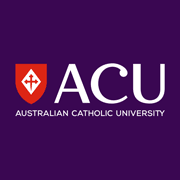Get course details
Graduate Certificate in Religious Education
The Graduate Certificate in Religious Education from the Australian Catholic University delivers the certification, foundational knowledge, skills and abilities needed to teach religious education. Current school teachers can do this course to qualify to teach religion in schools. Please contact your local diocese or employer to confirm the particular accreditation requirements.

